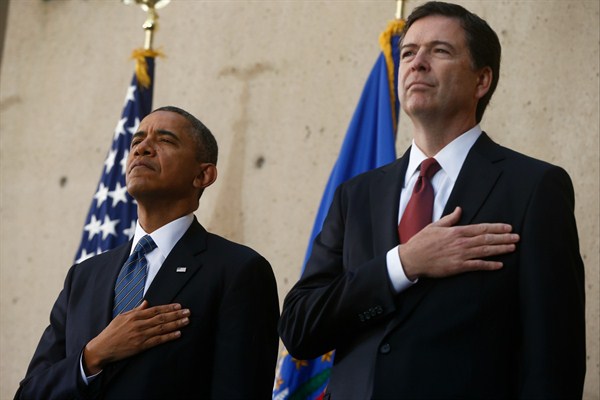A Washington Post exposé published Friday revealed new insights into the Obama administration’s real-time reaction to mounting evidence of Russian interference in the 2016 U.S. presidential election. The administration’s agonizing efforts to find a commensurate response, while avoiding escalation and the perception it was seeking to influence the election, will be interpreted through a mean-spirited partisan prism. That’s too bad, because there are sober lessons about politics and policymaking that should be considered across the partisan divide.
The Obama administration struggled to find appropriate countermeasures to Russian meddling in the final weeks of its time in office, according to the Washington Post’s new reporting. The report tracks the intense debates about how to respond once the intelligence community provided former President Barack Obama very sensitive evidence about the extent of Russia’s efforts to help Donald Trump get elected. Nearly every option ran the risk of provoking charges that the president was acting to achieve a political outcome, rather than to protect national interests.
Contrary to Trump’s claims yesterday on Twitter, Obama did act while he was still in office, expelling several dozen Russian diplomats and closing two facilities for Russian diplomats that were believed to be used as part of the election hacking operation. He also, according to the Post report, authorized some covert actions in the cyber domain that could be operationalized in the event of a conflict, in order to deter if not defeat Russia’s relentless cyber aggression. Some of the measures were put in place discreetly before the elections, including a direct demarche by the president to Russian President Vladimir Putin in September and a quiet effort to ensure the security of voting systems around the country. Other steps were announced publicly only after the November presidential election.

